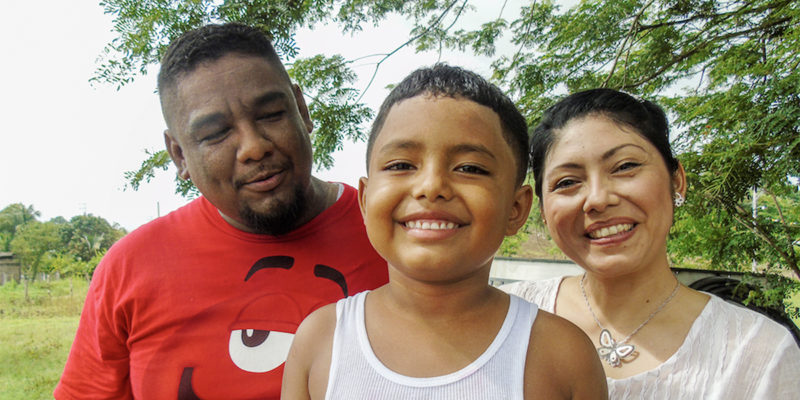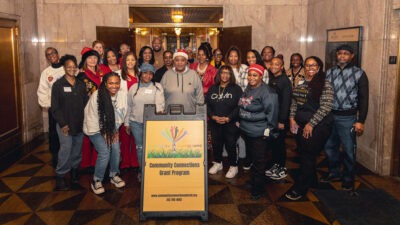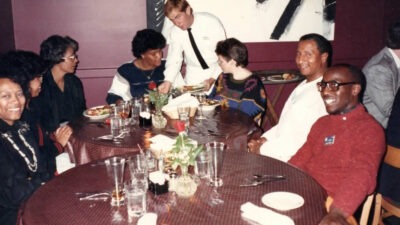This post is also available in: Español (Spanish) Kreyòl (Haitian Creole)
To curb the spread of COVID-19, census workers in Mexico are taking certain safety measures, like standing a few extra feet from their interviewees.
That’s not the only difference this year. For the first time in the nation’s history, Mexican census takers are asking residents if they identify as Afro-Mexican, Afro-descendant or Black. To understand the enormity of this development, it helps to know the background.
As a Mexican who is interested in social justice and equality, I can tell you that conversations about racism and racial equity in Mexico are long overdue. In fact, the concept of racism was not a significant part of public discourse here until 1994 (173 years after independence from Spain), when the Zapatistas, militants for Indigenous rights, launched an armed insurgency. The Zapatista movement not only acknowledged racism as a concept; it exposed how all aspects of life for Indigenous people are affected by it in a country with a long history of discriminatory policies and practices targeting Indigenous people – and Afro-Mexicans.
Today, these conversations are just beginning to enter the mainstream, with Afro-Mexicans, Afro-descendants and members of the Black population leading the effort. Based on a 2015 public survey, it is estimated that 1.4 million people identify as Afro-Mexican. The presence of this population in what is now Mexico stretches back more than 500 years, starting with the trans-Atlantic slave trade.
"As a Mexican who is interested in social justice and equality, I can tell you that conversations about racism and racial equity in Mexico are long overdue."
In 2011, three Mexican women activists and academics founded El Colectivo para Eliminar el Racismo en México (COPERA) and soon set their eyes on the 2020 census. Because of their anti-racism work in Mexico, they understood the importance of this census as the first in the nation’s history to include a question about self-identification for Afro-Mexican, Afro-descendant and Black people. They believed that this question would reveal this population’s sociodemographic profile and spur a public conversation about racial equity and, in turn, potentially lead to the creation of public policies to address disadvantages.
March 2020: A Historic Census
In 2017 and 2018, COPERA co-founder Dr. Emiko Saldivar, Dr. Erika Arenas at U.C. Santa Barbara (UCSB) and Dr. Patricio Solís at El Colegio de México (COLMEX) partnered to determine the most appropriate terminology to use in the census question, and how to capture not only the number of people of African descent, but the socio-economic situation associated with that population. They also looked for comparison at the question about Indigenous self-identification, which was first included in the census in 2000.
Together these individuals and their organizations analyzed the data from past surveys to inform the wording of the census question. The analysis also informed the development of #AfroCensoMx, a communications campaign with two goals: to create awareness among the general population about the inclusion of Afro-Mexicans and Afro-descendants in the census, and to encourage people in the target population to self-identify and proudly name their heritage.
This campaign brought together more than 30 entities, including some key grassroots organizations from the Afro-Mexican and Black movements in Mexico, Kellogg Foundation grantees COPERA, UCSB and COLMEX, and government institutions such as the National Council to Prevent Discrimination (CONAPRED) and the Senate. The campaign has, so far, generated more than 70 stories in various digital, television, radio and print outlets. The campaign is now in its most important phase – the one aligned with the actual carrying out of the census, March 2-27.
Monica Moreno Figueroa, one of COPERA’s co-founders, says the census initiative is part of an effort “to make racism visible.” Today she teaches about race and racism at the University of Cambridge in England but frequently returns to Mexico for academic research and to work on the #AfroCensoMx campaign.
“I’m very interested in the life of racism, how racism works, how racism is felt and experienced by people,” Moreno Figueroa says, adding that pursuing this inquiry is “very hard in a country that has denied that racism exists.” But for Moreno Figueroa, who is Black-Mestiza and Mexican, this pursuit isn’t just intellectual. She says growing up in Mexico she experienced a “pernicious” racism that included microaggressions and attacks to her sense of self. Yet she was part of a small minority – a dark-skinned person in the middle class, and for those representing a more common alignment of race, class and economic standing, she says, “it’s much worse, obviously. It’s structural.”
While perhaps overdue, the timing of this census is significant. It comes on the heels of other advances in the inclusion of Blacks, Afro-Mexicans and Afro-descendants in Mexico. In 2019, Mexico’s government reformed the constitution to include a statement recognizing Afro-Mexican people as part of the multicultural nation, and it ratified both the Inter-American Convention against all Forms of Discrimination and Intolerance and the Inter-American Convention against Racism, Racial Discrimination, and Related Intolerance.
Working with this coalition of intellectuals and grassroots activists has helped me see how far Mexico still has to go in addressing its history of racial discrimination, but has also given me hope that this combination of successes – especially the new census question – sets us on a path toward significant advances.
For more information on the campaign please visit https://afrocenso.mx/








Comments